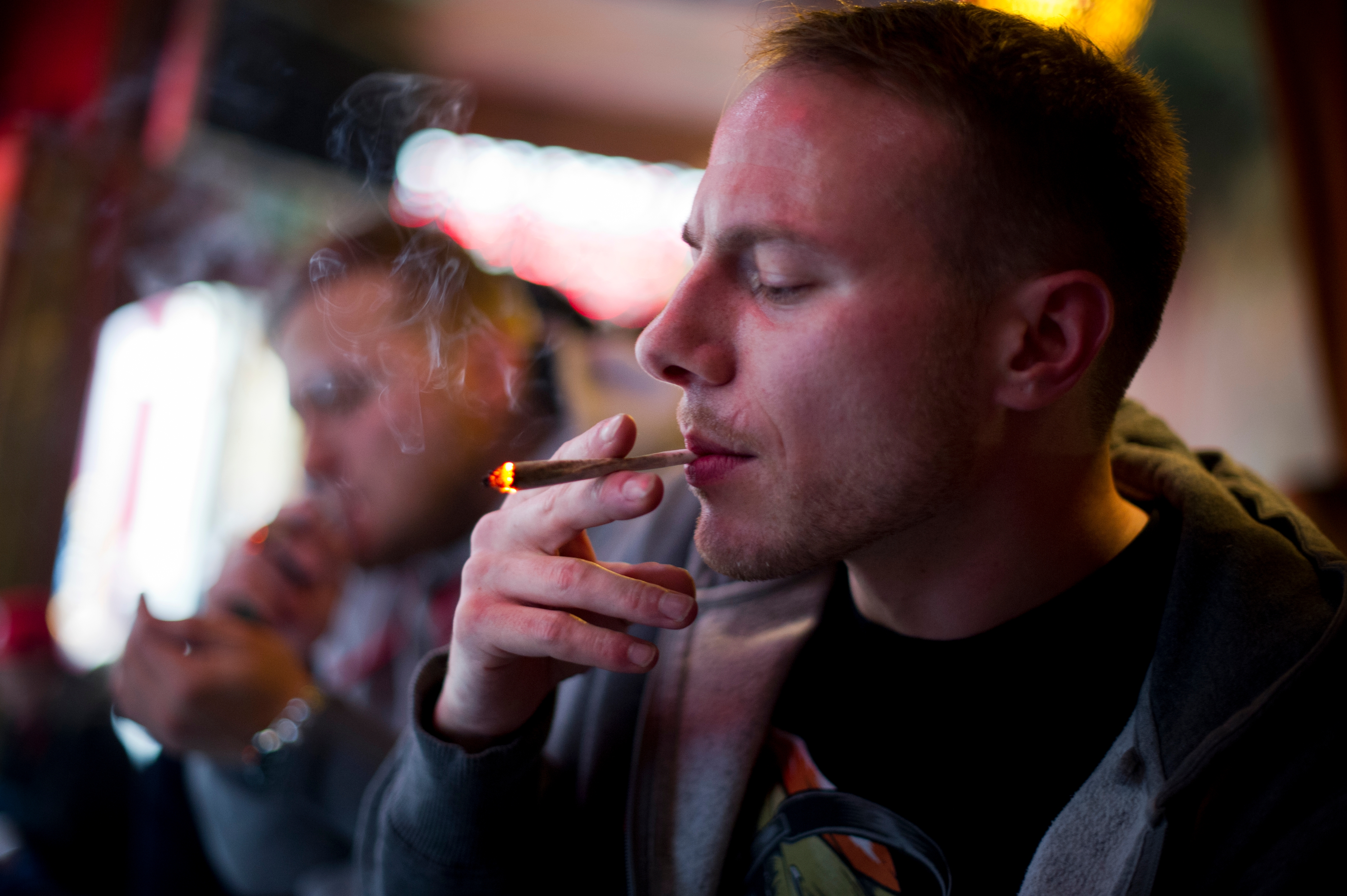The first time I came across skunk cannabis was in an underground out-of-hours bar in Nottingham in 1997. I think I’ll leave that as ‘came across’, if it’s all the same to you. I might want to be prime minister one day, and it’s important to have my tenuous denials lined up in advance. More expensive than your regular cannabis, I remember, uh, people saying, with a stronger smell and a far -stronger effect. Which I noticed, obviously, from the behaviour of other people. As I studied them with clear, unreddened eyes, like an anthropologist. Yes.
From then on, until I stopped moving in such circles, skunk was all there was. In my Scottish teens, the druggy kids — no, -officer, I didn’t get their names — smoked hashish, presumably brought in with the heroin through the docks at Leith. At university it was mainly marijuana. In my twenties, though, dope meant skunk. And throughout that time, whenever ageing commentators remarked, reasonably, that the stuff kids were now smoking was much stronger, nastier and generally worse for you than the stuff they’d been smoking 30 years earlier, it always bothered me that none of them ever seemed to wonder why. Or, indeed, whether the kids would rather have been smoking something else.
This is one of the points that I gather Professor David Nutt makes (or, depending upon when you read this, has made) in an interview this week on BBC Radio 5 Live, with Jacqui Smith. When drugs are illegal, he says, the incentive is for them to become stronger. Consider American bootleggers in the 1920s, and their disdain for beer. Risk and economics all point in one direction. Folk want more bang for their illegal buck.
Nutt, you might remember, was a government adviser on drugs, famed for getting sacked for suggesting that taking ecstasy was no more dangerous than riding a horse. Beforehand, he had been critical of the upgrading of cannabis from a Class C drug to a Class B, which he had advised against. Smith was the Home Secretary who ignored this advice. Now she says she wishes she hadn’t.
Something is changing, here. On dope, we are getting less dopey. When Nutt was fired (by Smith’s successor, Alan Johnson) there was a predictable and proper hullabaloo about the farce of an adviser being fired on the basis of his advice. But the wider philosophy — the idea that all drug laws were worth defending in and of themselves — didn’t really take much of a battering. Everybody knew there were attendant problems which emerge off the back of illegal drugs, from inner city gangs and entire narco-states to swelling jails and the inevitable risks when consumption and sale happen only in the dark. And everybody knew that these costs were more worth it with some drugs than with others. All of this, everybody knew. But nobody said.
Now, suddenly, people do say. And the impetus, this time, isn’t weird old hippies who want the pigs to, like, chill. It’s American democracy. Earlier this month, in the states of Colorado and Washington, electorates voted for the legalisation of marijuana for recreational use. This is not your mealy-mouthed Dutch or Portuguese decriminalisation business, nor the convenient hypocrisies of the ‘medical marijuana’ they smoke in California and elsewhere. This is making pot legal so that people can legally smoke it for fun.
It’s a biggie. But it is not yet, to use the vernacular, in the baggie. The federal government remains opposed, and federal will, in the US, reigns supreme. But state-level devolution, on such matters, is surely the future. Why shouldn’t it be? And the real change here won’t be for the user, because the user tends to get away with it, anyway. The real change will be supply side. Shops, instead of dealers. Trade routes instead of smuggling routes. Farmers, instead of cartels. Indeed, why would the cartels bother? The only thing that makes marijuana a commodity profitable enough for criminals to bother with is its illegality. Knock that out and it becomes like gang warfare over basil.
I give it ten years. I really do. It’ll happen over there, and it’ll happen over here. Maybe not with the other, bigger drugs — cocaine, heroin, ecstasy and all the rest — because the health implications are more complex and the hypocrisies of enforcement, as a result, less hypocritical. But with dope? You’ll be buying it in your off-licence. ‘Why couldn’t we always do this?’ you’ll wonder. ‘What was the world on?’
Monday lunchtime. I’m on a walkabout in Crouch End, trying to find somewhere to sit down with my laptop and finish an article (not this article) after the walls at home started to close in. We’re big on cafés in Crouch End; it’s all we’re good for. So I check out a few. Costa: almost full. New independent one next to Tesco: full. Italian place next to bus stop: full. Starbucks: empty.
‘Oh good,’ I think, and I approach. Then I stop. For the last week, Starbucks, Amazon and others have been being pilloried for their tax arrangements, which can basically be summarised as ‘arrange things so as not to pay tax’. I disapprove of that, in a vague and woolly way. So I go to Costa instead, and start worrying where I’m going to buy my Christmas presents.
I’m aware of the North London Fallacy; the mistaken belief of columnists from postcodes with N at the start that theirs is a world representative of anything other than themselves. But in Britain, Starbucks is the North London Fallacy, so I’ve a sneaking feeling the one cancels out the other. Empty. In Crouch End. At lunchtime. This is big.








Comments